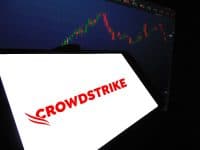The RBC analysts think that the solid pricing picture is positive for some of the top companies in the arena. With data use and storage needs exploding, strong growth is expected. The five companies that RBC covers in the report are Amazon.com Inc. (NASDAQ: AMZN), Google Inc. (NASDAQ: GOOGL), Microsoft Corp. (NASDAQ: MSFT), Rackspace Hosting Inc. (NYSE: RAX) and VMware Inc. (NYSE: VMW).
Amazon.com
Amazon.com has a gigantic cloud storage business that continues to dominate rivals. In fact, Amazon recently announced that it will start announcing Amazon Web Services (AWS) results separately starting in the first quarter of this year. It is one of the companies that the RBC team thinks is a direct beneficiary of the current tame pricing scenario.
ALSO READ: Why Deutsche Bank Says to Buy Gilead and Vertex Pullbacks
The analysts also report that in January, AWS introduced a larger C4 instance class into its Amazon Elastic Compute Cloud (EC2) offer for compute-intensive workloads, such as online gaming, simulation and analytics applications.
The RBC team rates the stock at Outperform, with a $410 price target. The Thomson/First Call consensus price target is $395.41. Shares closed Thursday at $374.09 apiece.
Google is making a big effort to compete with Amazon on the lower tier pricing for cloud storage. Recently, Google augmented its online backup offerings by introducing Nearline storage at a dirt cheap $0.01 per gigabyte per month. This matches Amazon’s Glacier storage service on price, but it offers significantly faster retrieval times for infrequently accessed data. This difference is Nearline does charge extra for data retrieval and early data deletion.
As with buying Amazon stock, Google offers investors multiple silos of business that augment the cloud storage area.
The stock is rated Outperform at RBC, with a $640 price target. The consensus target is posted at $650. Shares closed Tuesday at $577.54.
Microsoft
Microsoft’s Azure product offering has gained traction, and the software giant is increasing its presence in the cloud world. Microsoft rolled out the company’s G-series cloud offering back in January. With 448 gigabytes of RAM and 6.6 terabytes of local solid state drive storage, the roll-out for customers is currently limited to the western U.S. region. The RBC team points out that the Microsoft product offering beats Amazon by 80% on memory, and it is comparable on local storage and compute cores.
Microsoft investors are paid a 2.9% dividend. The stock is rated Outperform at RBC, and they have a $50 price objective. The consensus estimate is $47.06. Shares closed Tuesday at $42.90.
ALSO READ: iPhone 6 Survey Shows That Apple Is Not the Only Big Tech Winner
Rackspace Hosting
Rackspace gets 31% of its total revenue from the public cloud, so the firming status of the current pricing bodes well for the company. It announced last fall that it was updating and modernizing its relationship with Microsoft and now offers support for Microsoft’s private cloud offering, along with added support for Google Apps. The stock has had a huge run, so investors may want to put it on a watch list for a pullback.
The stock is rated Market Perform at RBC with a $44 price target. The consensus target is $53.25. The stock closed Tuesday at $52.75.
VMware
The RBC team noted some changes at VMware in its research report. The company lowered pricing for cloud computing and self-service, pay-as-you-go options for public cloud. VMware touts that the vCloud Air product delivers two times the compute power of Microsoft Azure and three times the storage performance of Amazon’s AWS.
The RBC team rates the stock at Outperform, with a price target of $100. The consensus target is $96.08. The stock closed trading on Tuesday at $84.28.
ALSO READ: 4 Attractive Dividend Stocks for a Low Interest Rate World
With cloud usage soaring, the competition among the giants will only increase. The barrier to entry for newer companies may be difficult, with these mega cap techs flexing their proverbial corporate muscles.
Thank you for reading! Have some feedback for us?
Contact the 24/7 Wall St. editorial team.






